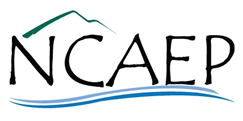Please join NC Water Resource Association and NC Association of Environmental Professionals in downtown Winston Salem on Thursday, October 1 to hear Rich Gannon (NC DWR), Michael Ellison (NC DMS), Marc Recktenwald (City of Charlotte), and Kyle Hall (City of Charlotte) discuss Nutrient Management Implications for Mitigation.
DATE: 1 October 2015
WORKSHOP: 1:00
Marriott - Downtown Winston-Salem
425 North Cherry Street
Winston-Salem, NC 27101
SOCIAL: 5:30
Foothills Brewpub
638 West Fourth St.
Winston-Salem, NC 27101
In-Lake Mitigation, Source Controls, and Nutrient Strategies Going Forward
Rich Gannon, Nonpoint Source Planning, NC Division of Water Resources
Rich will provide an overview of the state’s current activities to address nutrient over-enrichment. He will discuss possible implications for nutrient strategies of recent legislative outcomes regarding in-lake mitigation. He will share ongoing progress on expanding the toolbox of load-reducing measures for existing and new development purposes, and will touch on the nutrient criteria and nutrient strategy development process unfolding for High Rock Lake.
Public and Private Roles in Nutrient Management
Michael Ellison, Director, NCDENR Division of Mitigation Services
What should the State of North Carolina be doing to manage nutrients in the state’s waterways? Specifically, what activities are legitimately performed by the state? What activities might best be performed by the private sector, NGOs, or local governments? Are there roles or tasks the state should avoid with ten foot poles? There are many differences between what a state can do and what a state should do, and water quality objectives are most definitely achievable when the state's activities are constrained by prudence and informed by experience.
Multiple Funding Tools for Watershed Improvement
Marc Recktenwald, Water Quality Program Manager, City of Charlotte Storm Water Services
The City of Charlotte has many water quality compliance requirements issued under state and federal rules. When appropriate, the City has implemented ordinances that address new and historic impacts while maintaining flexibility for development by allowing part of the compliance requirement to be addressed through payment into a City sponsored In-Lieu Fee Program. These ILFs combined with the City’s Stream and Wetland Mitigation Bank and its Capital Improvement Program allow the City to use multiple funding tools to address watershed improvement.
City of Charlotte Monitoring Program Results and Trends
Kyle Hall, Senior Water Quality Engineer, City of Charlotte Storm Water Services
Charlotte-Mecklenburg Storm Water Services (CMSWS) has been monitoring the local streams since the early 90’s. In the last 8 years the monitoring program has also been geared towards detecting long term trends in over 20 different water quality parameters through Fixed Interval Monitoring (FIM). Through a combination of FIM, continuous monitoring, and biological monitoring CMSWS works to understand the stressors on the system and improve water quality and the ecology of the system. Historically, nutrients have not been the primary cause of impairment but these parameters have been monitored and some valuable insights have been gained.
SaveTheDate.pdf
NCWRA_NCAEPWorkshopAgendaAbstractBio.pdf
Event Sponsors:







